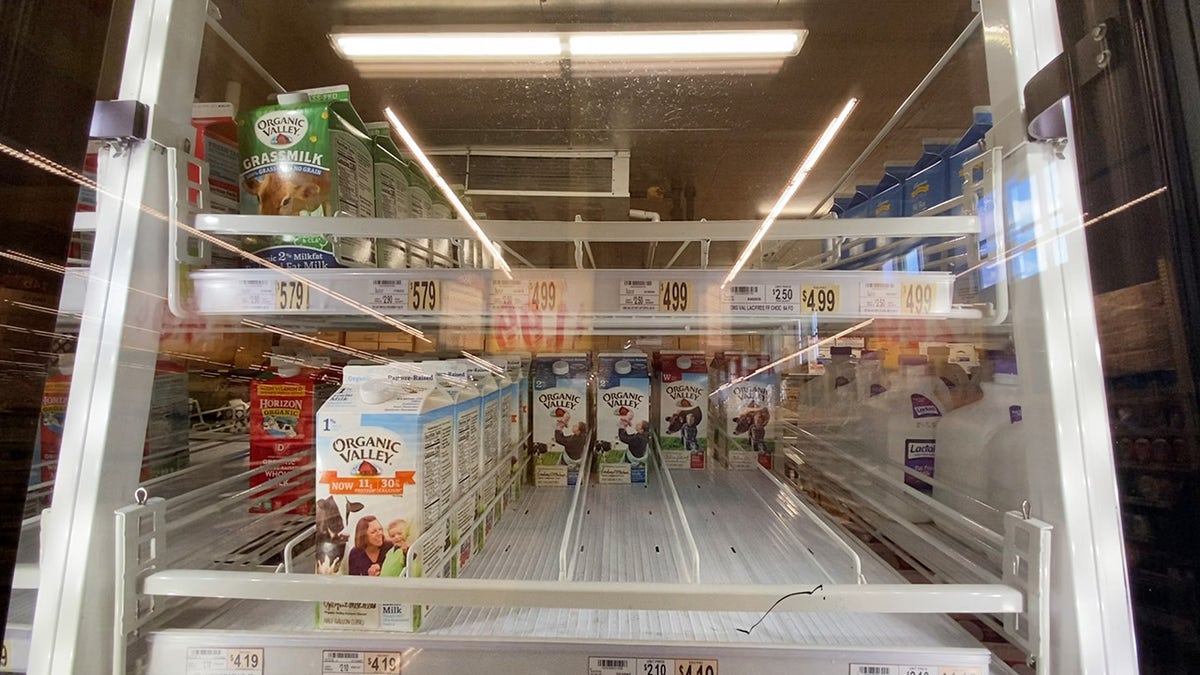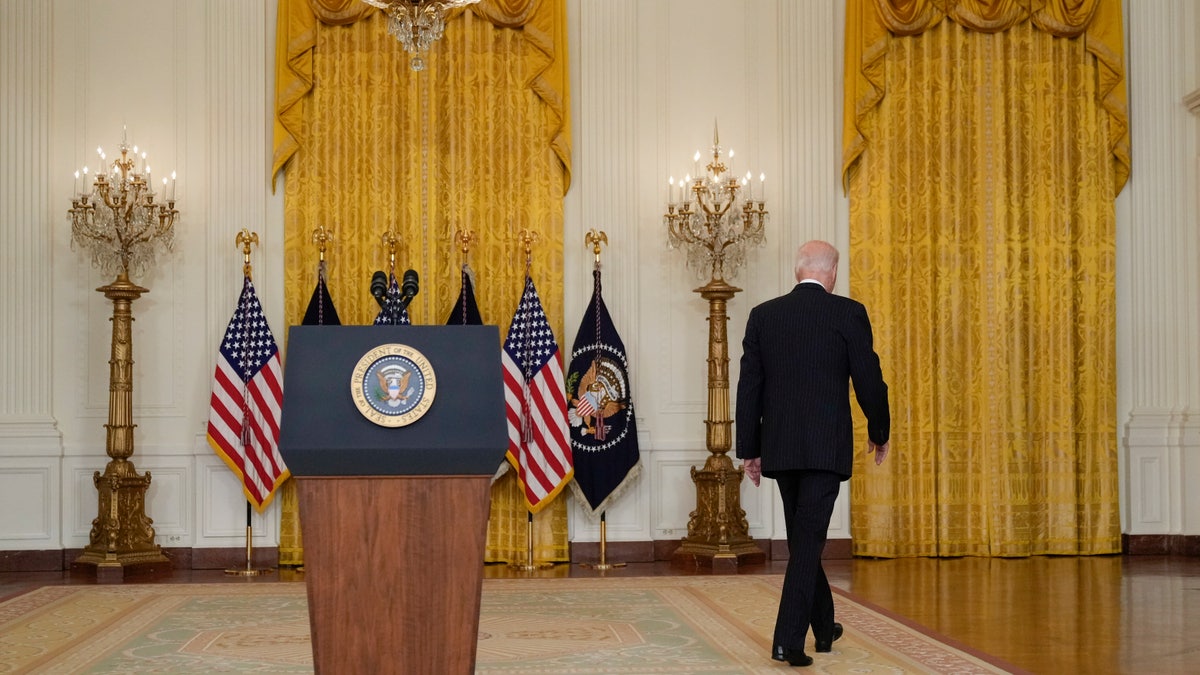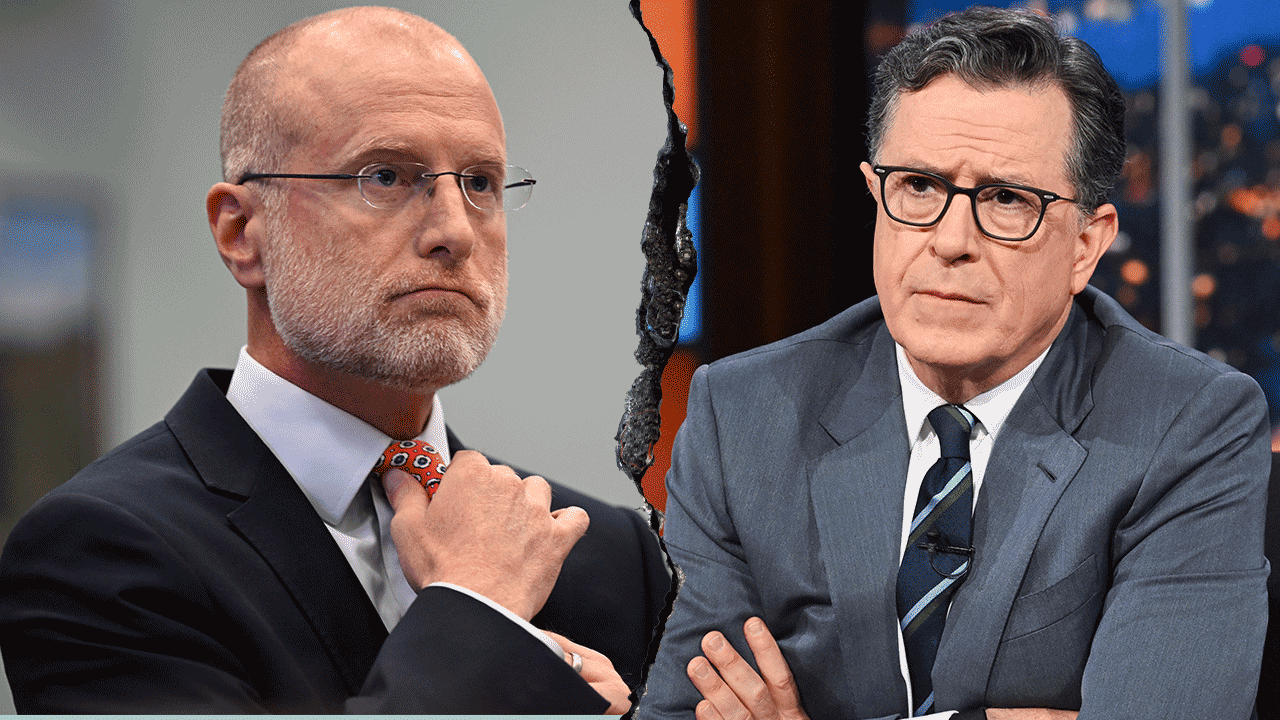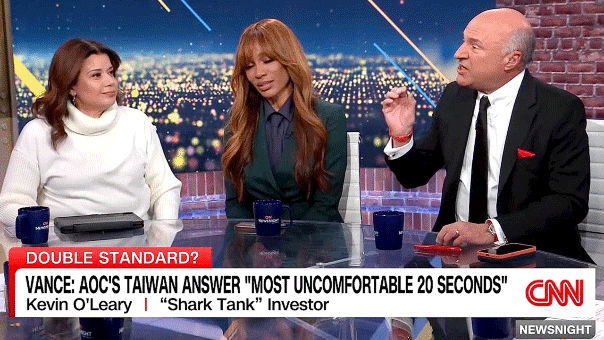Media top headlines November 18
In media news today, Bill Maher and Chris Cuomo clash over Dave Chappelle's Netflix special, The Washington Post corrects over a dozens Steele dossier articles, and a New York Times contributor says inflation panic is driven by 'rich people' mad over their devalued assets
The supply chain crisis has hit home for Americans the past few months, but the liberal media have often instructed shoppers to accept their fates, be "thankful" for inflation, "lower their expectations," or consider their own role in the economic downturn – a narrative some economic experts rejected.
The consumer price index rose 6.2% year over year in October, according to the Department of Labor, the largest annual gain since November 1990, and prices rose 0.9% month over month. Supply chain shortages have been felt all over the country, with consumers sharing countless photos of empty grocery store aisles.
Economic experts like Stephen Moore argue that the coronavirus pandemic, which largely kept Americans home, does not take all components into account when trying to understand the supply constraints. While Moore, a senior fellow at FreedomWorks, said it's "true" there was deflation last year and the U.S. is "catching up" from a severe dip in consumer spending and prices, he said the Biden administration's "series of unforced errors" are also to blame.
Biden's unemployment insurance program, which Moore called "insane," held millions of workers out of the workforce and depressed production, in turn affecting the supply chain, he said.
"But what’s really made the inflation problem significantly worse was that $1.9-trillion spending bill in March which just deluged the U.S. economy," Moore told Fox News Digital, referring to President Joe Biden's American Rescue Plan.
SUPPLY CHAIN EXPERTS WEIGH IN ON CAUSES, SOLUTIONS FOR BACKLOG
Professor Brian Brenberg, who serves as an Executive Vice President and Associate Professor of Business at The King's College, also didn't buy the argument that inflation is all tied to the pandemic. He pointed to the "confusion" businesses have felt around employment and hiring with vaccine mandates, as well as the challenges of finding employees at a time of higher unemployment benefits. Those factors "reduced" their capacity to produce and to serve people, Brenberg said, arguing they were "definitely a key driver of both the inflation that we’ve seen, and the supply chain crisis."
He singled out energy costs as one more contributing factor, noting that energy producers were uncertain of making energy investments with this administration.
"Those are policy decisions," he said. "Those are not extraneous COVID issues."
But liberal media outlets and pundits have continued to blame the consumer for the shortages.

Shoppers in a Washington, D.C., suburb reacted to surging grocery prices amid supply-chain bottlenecks and rising inflation. (Fox News)
According to a Bloomberg opinion writer, America has entered a stage of "overabundance" and would do well to look to Europe.
"If this continues, we may need to learn to do without — and, horrors, live more like the Europeans," the author wrote. "That actually might not be a bad thing, because the U.S. economy could be healthier if it were less reliant on consumption."
TIME SARCASTICALLY CHEERED FOR ‘TOP NOTCH' MESSAGING AFTER BLAMING CONSUMERS FOR SUPPLY CHAIN CRISIS
The Washington Post, meanwhile, instructed Americans to "lower expectations."
As The Intercept put it, "Inflation is good for you."
"Don’t panic over milk prices," the outlet wrote. "Inflation is bad for the 1 percent but helps out almost everyone else."
In the same vein, Bloomberg Markets told readers to smile knowing that inflation this Thanksgiving should make them "thankful" they don't have bigger families.
Moore weighed in on what he described as a frustrating news cycle. First, he said, the press rejected that inflation existed, then they said it was "transitory," and now they report it's "good" for Americans.
"I think they’re apologizing for policies that they supported and that have been on fire. No one likes to be proven wrong … When you’re wrong you try to make up excuses for why you were wrong. And that’s what’s happening with the media," Moore said.
Some pundits have been much more forward in their messages for Americans. MSNBC's Stephanie Ruhle made headlines last weekend for downplaying the rising costs of food and other everyday items during a conversation with "Sunday TODAY" host Willie Geist. "On average," she argued, Americans can afford the price bumps. The host was dubbed "Stephanie Antoinette" for that take.
"The dirty little secret here, Willie, while nobody likes to pay more, on average, we have the money to do so," she said. "Household savings hit a record high over the pandemic, we didn't really have anywhere to go out and spend."
"The innocent explanation is that they're just out of touch," the Hoover Institution's Tyler Goodspeed argued of the media. "They're generally on the coast - the West and East Coast, which have been less affected by inflation."
Things like rent, gas, utilities and groceries are just "a much bigger deal" for lower-income and middle-income Americans, he added.
The other, more sinister possible explanation, Goodspeed said, is political.
"I think a lot of them want this to be a messaging problem," he said. "I think there is an element of elitism. ‘How dare you complain about prices?’"

WASHINGTON, DC - OCTOBER 13: U.S. President Joe Biden departs after speaking about supply chain bottlenecks in the East Room the White House October 13, 2021 in Washington, DC. (Photo by Drew Angerer/Getty Images) (Photo by Drew Angerer/Getty Images)
CNN's Brian Stelter stoked another round of online outrage after he seemed to make light of Americans' concerns about the supply shortages by sharing an image of a fully stocked Wegmans.
Stelter did make a point by sharing the photo, just perhaps not the one he was trying to make, Brenberg argued.
"If you’re at a point where you’re taking pictures of milk on the shelf to prove how good things are, you know things are not good because no one was taking pictures of milk on the shelf three years ago. That was a given in America," Brenberg said.
CLICK HERE TO GET THE FOX NEWS APP
"It could be indicative of Brian Stelter shopping at Wegmans," Goodspeed added. "I don't think most Americans are shopping at Wegmans."











































